Why Do Dramas Do That?: The Table of Contents
by javabeans
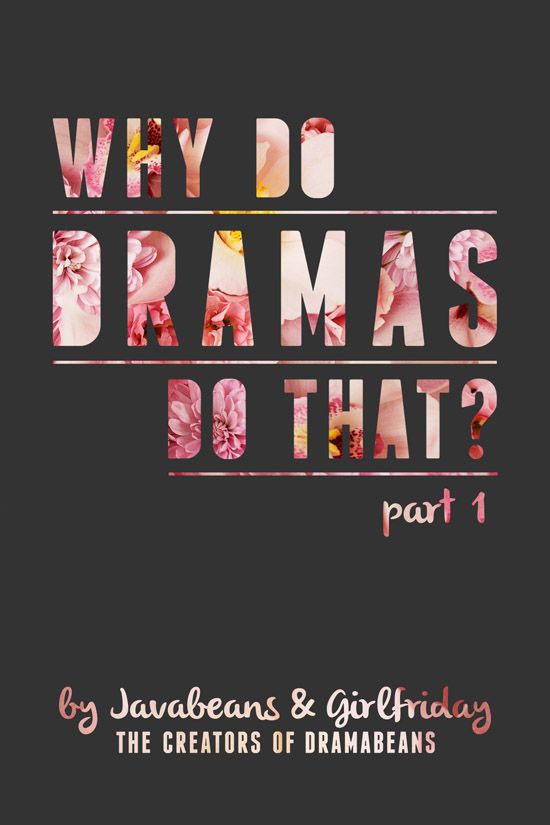
![]()
Last week we gave you a brief taste of what’ll be in our forthcoming ebook Why Do Dramas Do That? (Part 1), and now we’re unveiling the full lineup. So here’s the full list of topics for Part 1, beginning with the lay of the (drama)land and ending on some of the recurring narrative tropes we’ve come to know and love. Or hate. Or love-hate. Yeah, probably that last one.
You may be wondering why a few key points seem to be missing (Where are the piggyback rides? Wrist grabs, drinking culture, bad daddies, fruit cutting?) but fear not — those are definitely in the mix for Parts 2 and 3.
To address a few concerns from the previous thread: You don’t have to have a Kindle or Nook or Sony Reader to be able to read the ebook (though if you do, you’re set). If you’ve got a a computer or a smartphone, you’ll be able to use free apps (like the Kindle app) on your device, which will work just as well.
Why Do Dramas Do That? is currently being madly slapped together by a brigade of monkeys on typewriters lovingly prepared for its upcoming release. It’ll be soon! We promise. We’re working on it, okay?
WHY DO DRAMAS DO THAT? (Part 1)
TABLE OF CONTENTS
I. What is a Drama?: Drama Meta
- What is Hallyu?
- Why are most K-dramas only one season?
- What’s a live-shoot?
- What is a trendy drama?
- What’s a sageuk and how do you pronounce it?
- What’s a melo?
- Why does makjang get such a bad rap?
- What’s this meta you guys keep talking about, and why’s it so funny?
II. You Can Call Me Names, But You Can’t Call Me By Name
- How can speech be “short” or “long”?
- What’s an oppa?
- What’s a noona?
- Who gets called unni, and why?
- What about hyung?
- Yeah, but what about when people call each other sunbae/hoobae?
- Is being an ajumma an age or a state of mind?
- Why do people always say Hwaiting / Fighting?
III. Money, Money, Money
- Candy: Cinderella on steroids?
- The Prince and the Pauper: Wither the middle class?
- What’s an al-ba and why does everyone have one?
- Why are loan sharks such a threat to the innocent heroes and heroines of dramaland?
- How do characters lose entire fortunes and homes by the actions of others?
- Can’t a Cheongdam-dong daughter-in-law and a Hongdae club rat just get along?
- Rooftop Rooms: You might be poor but at least you have a view
- Do people still live in those old-timey houses and why?
IV. Cornerstone Cliches: Tried But True
- Why is everyone in a K-drama obsessed with a first love?
- If you don’t have a birth secret, you just haven’t discovered it yet
- Forget Me Not: Is selective amnesia a real thing?
- Loving your brother from another mother: Is it ever safe?
- Why do diametric opposites attract?
- Is unrequited love still love? The Backhug: love unrequited
- Dear Noble Idiot
RELATED POSTS
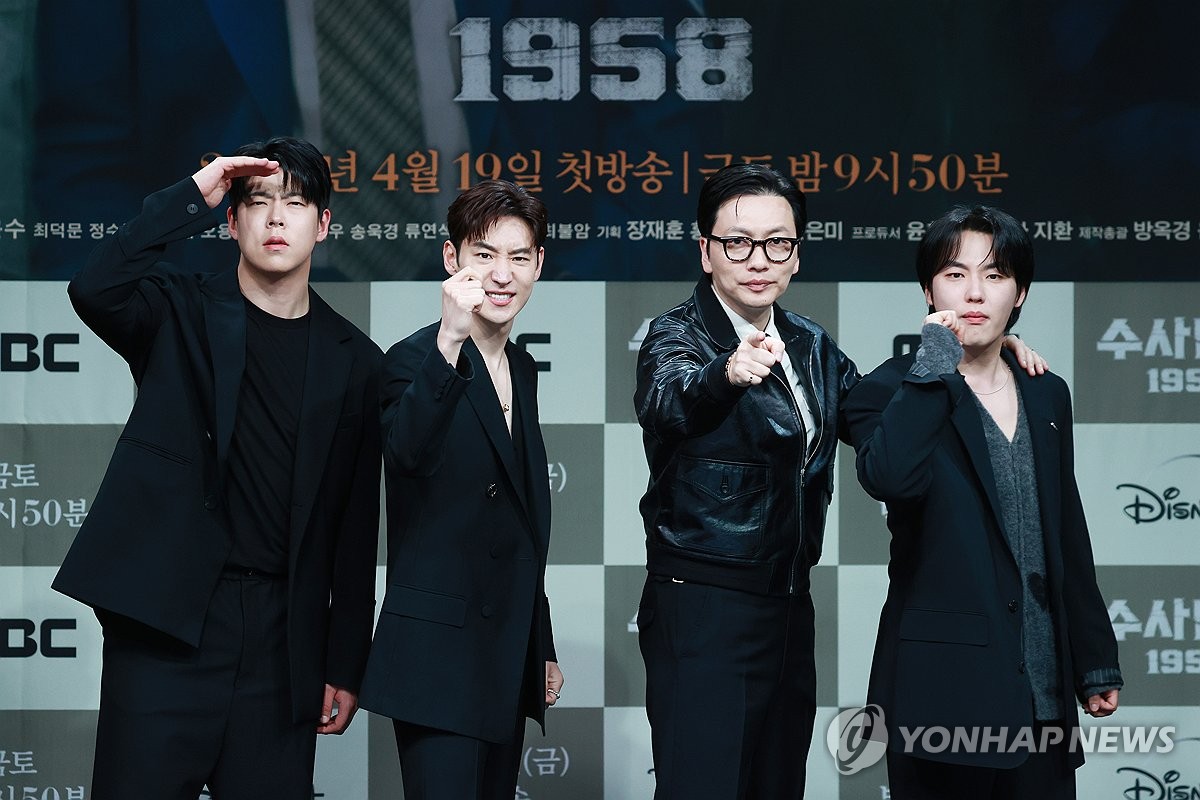
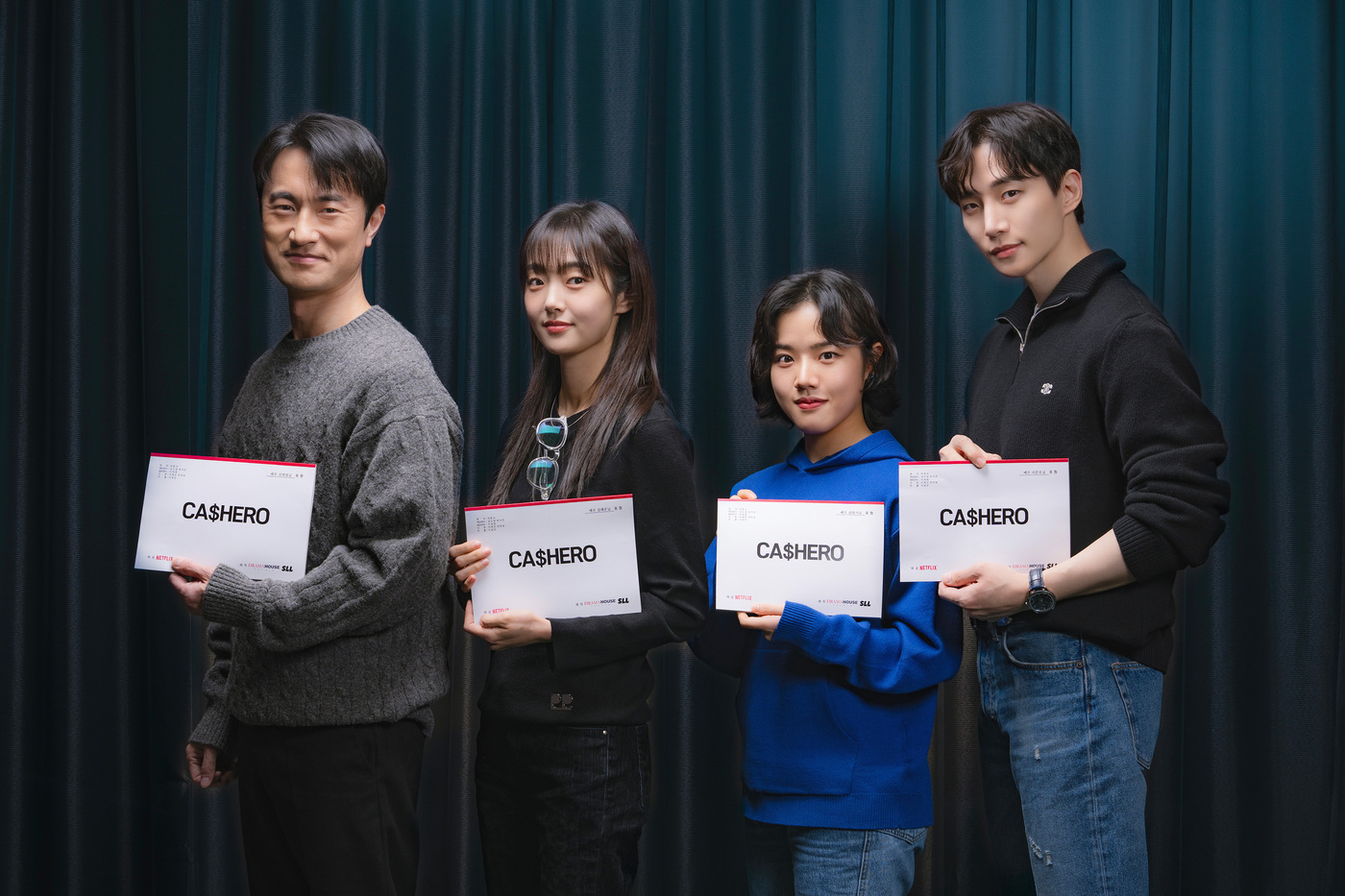
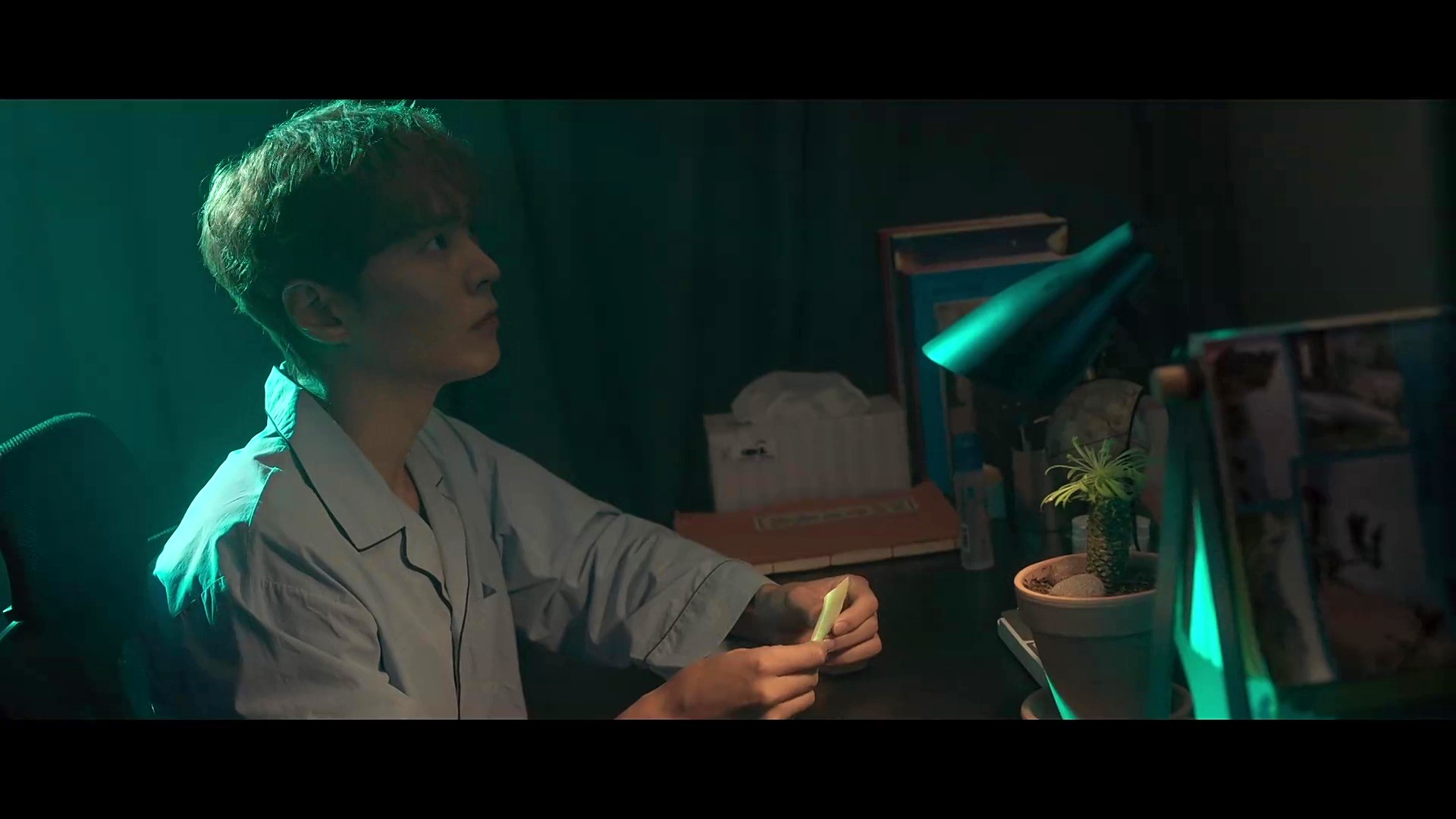
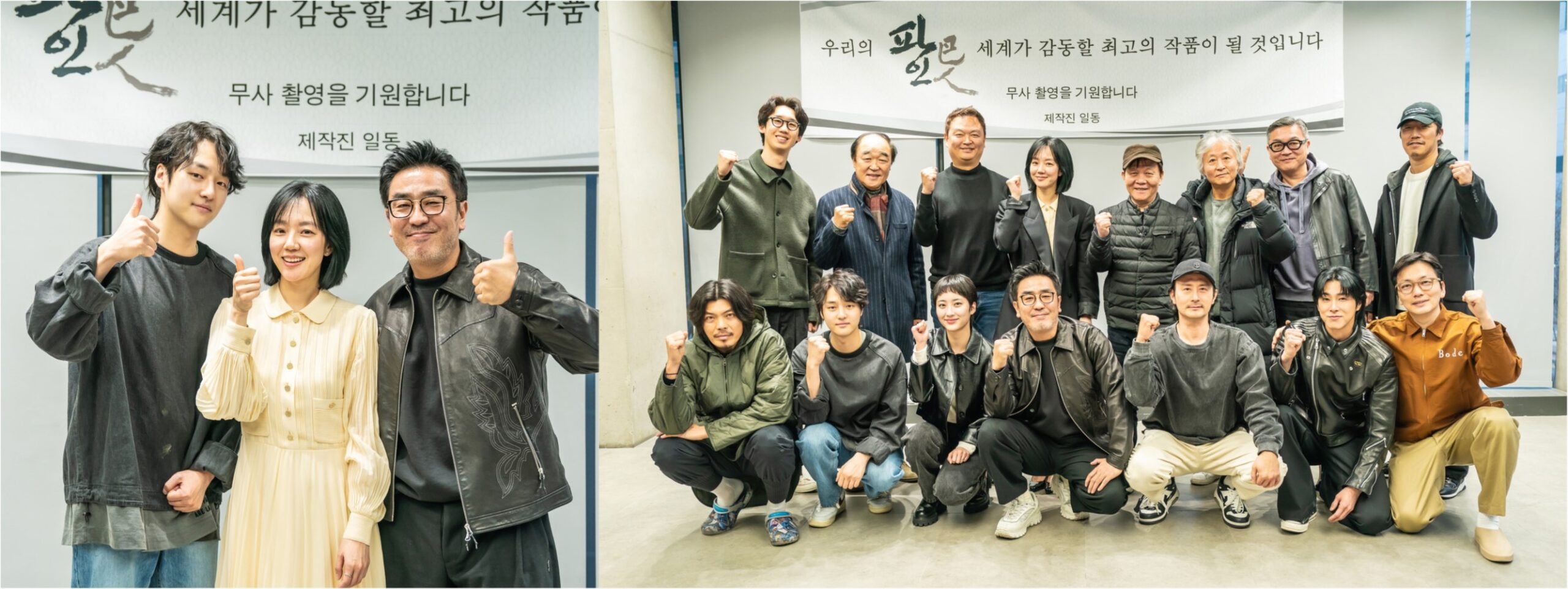
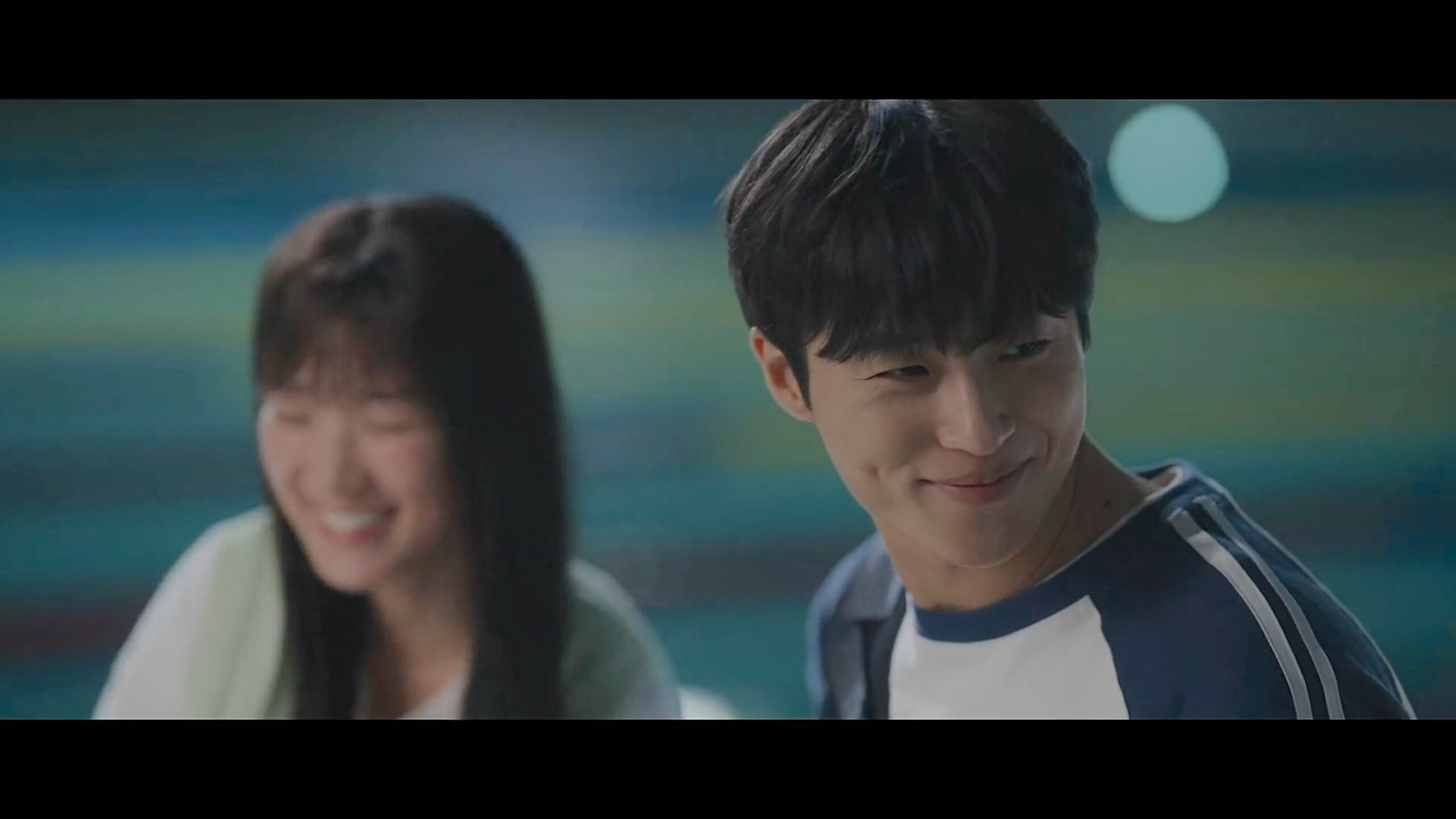
![[Beanie Recs] Dramas about fangirling](https://d263ao8qih4miy.cloudfront.net/wp-content/uploads/2022/05/BeanieRecs.jpg)
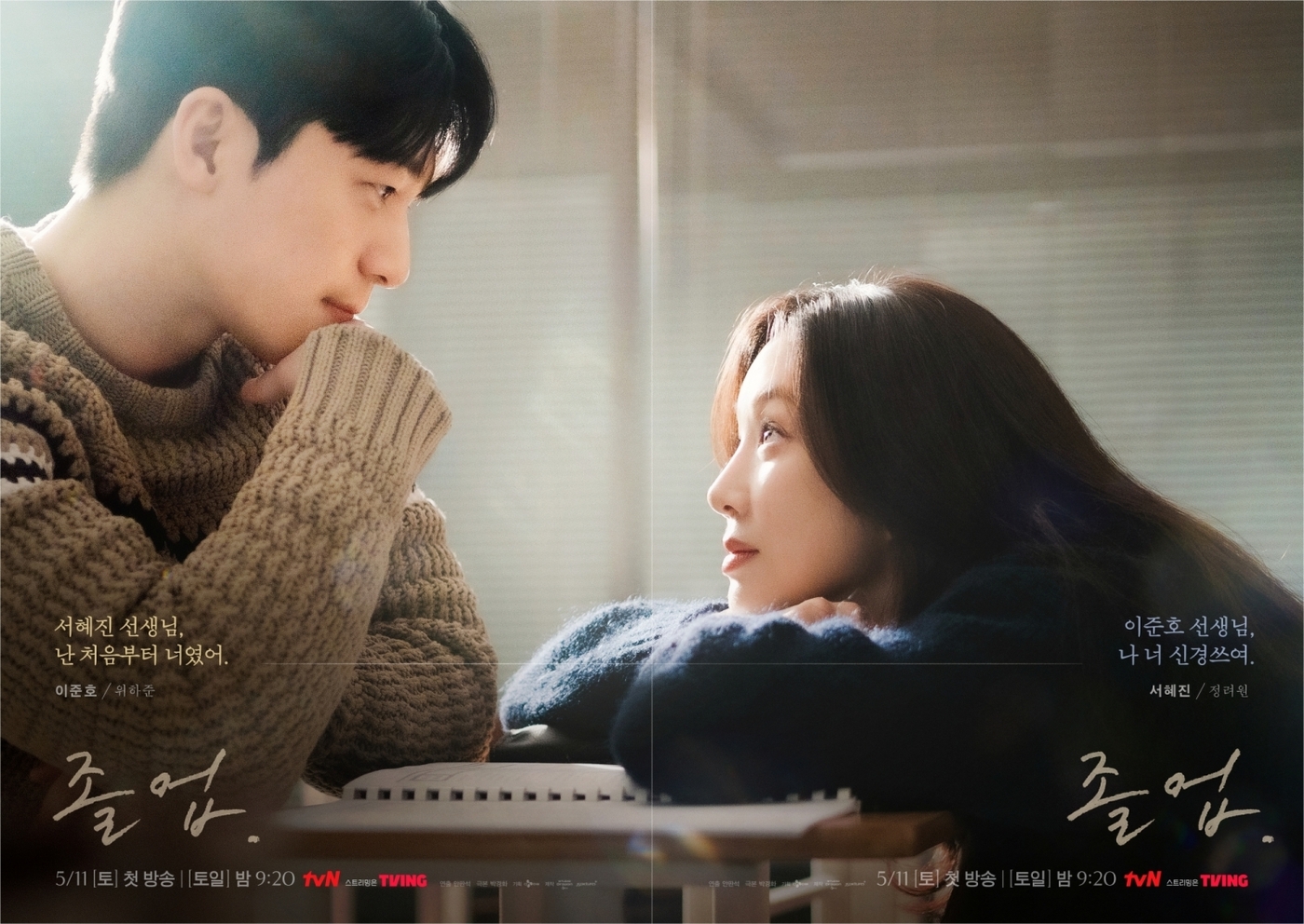
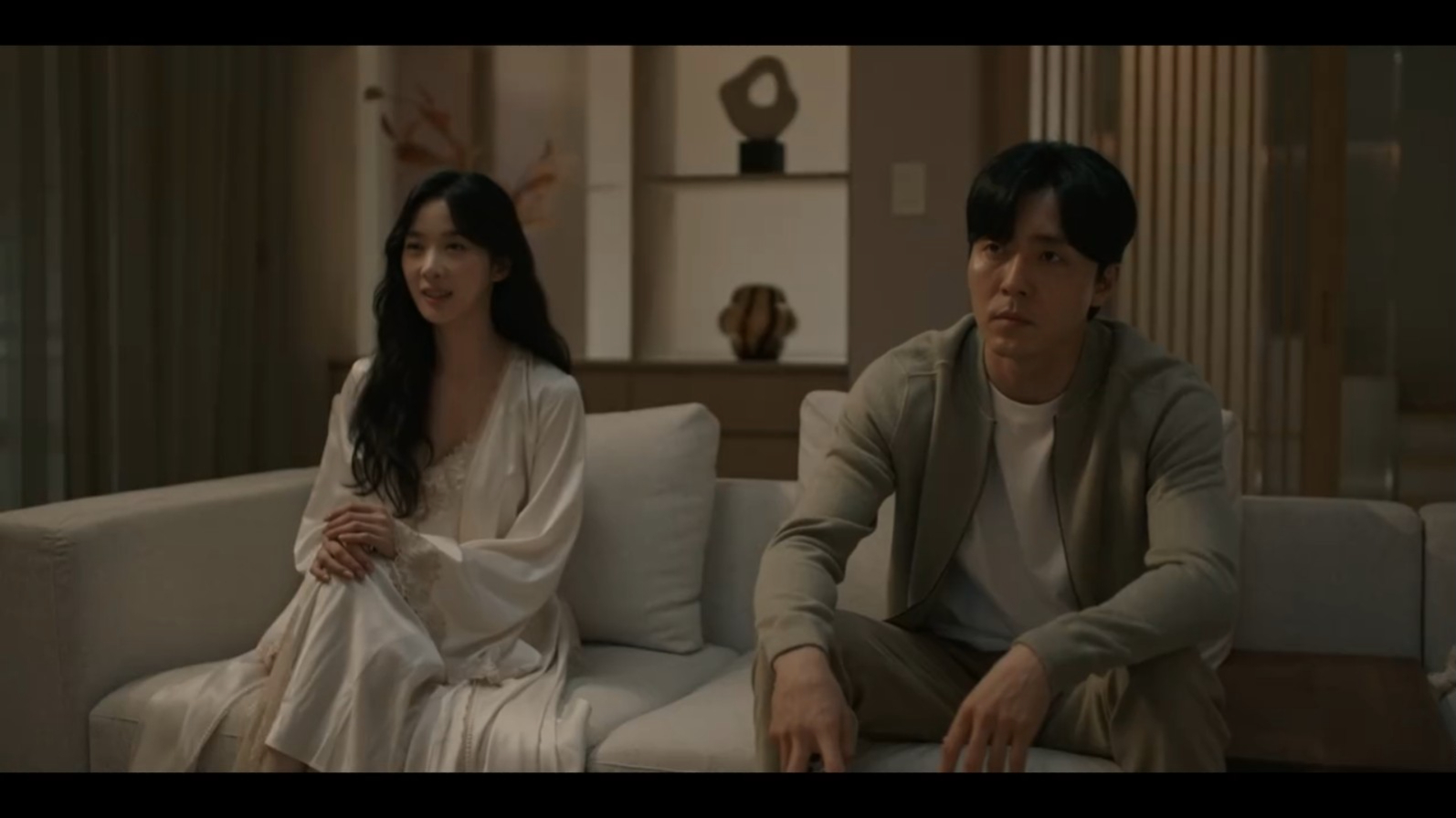
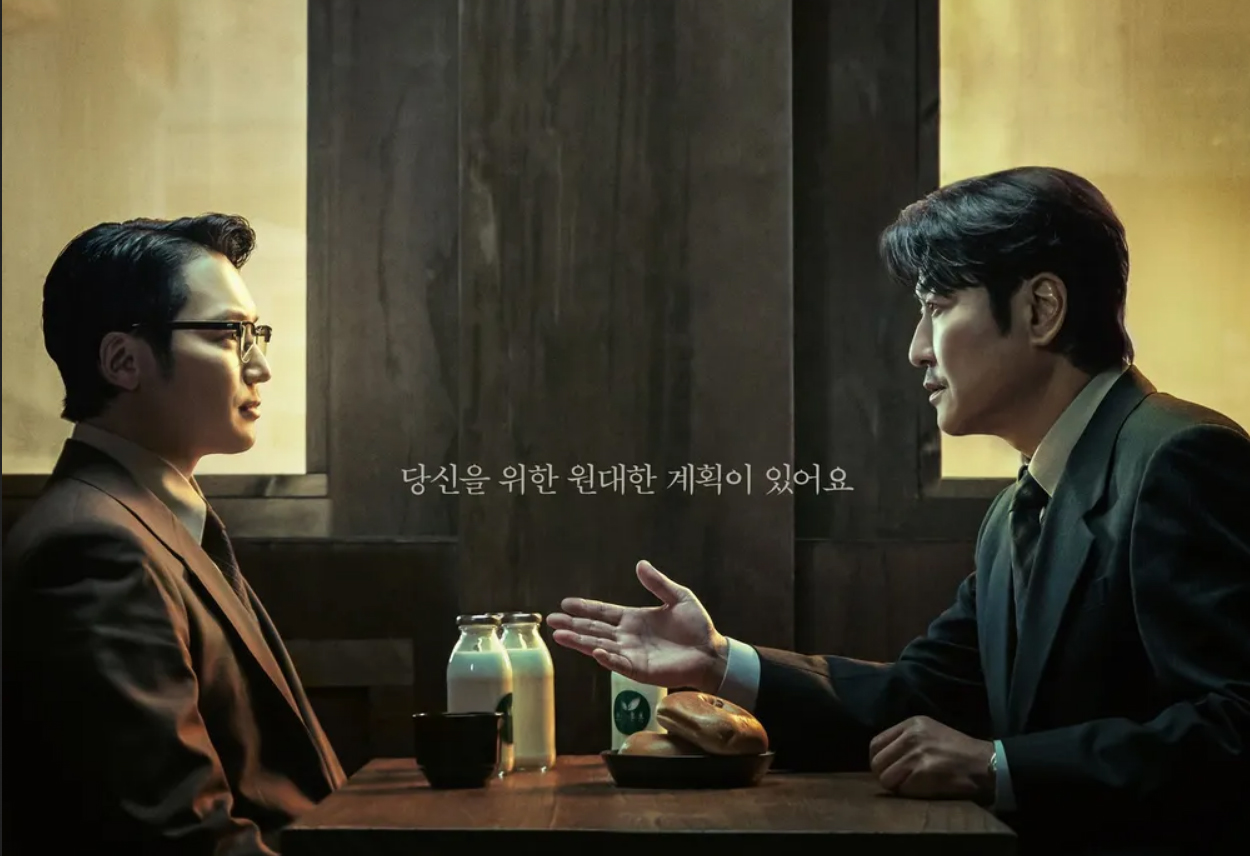
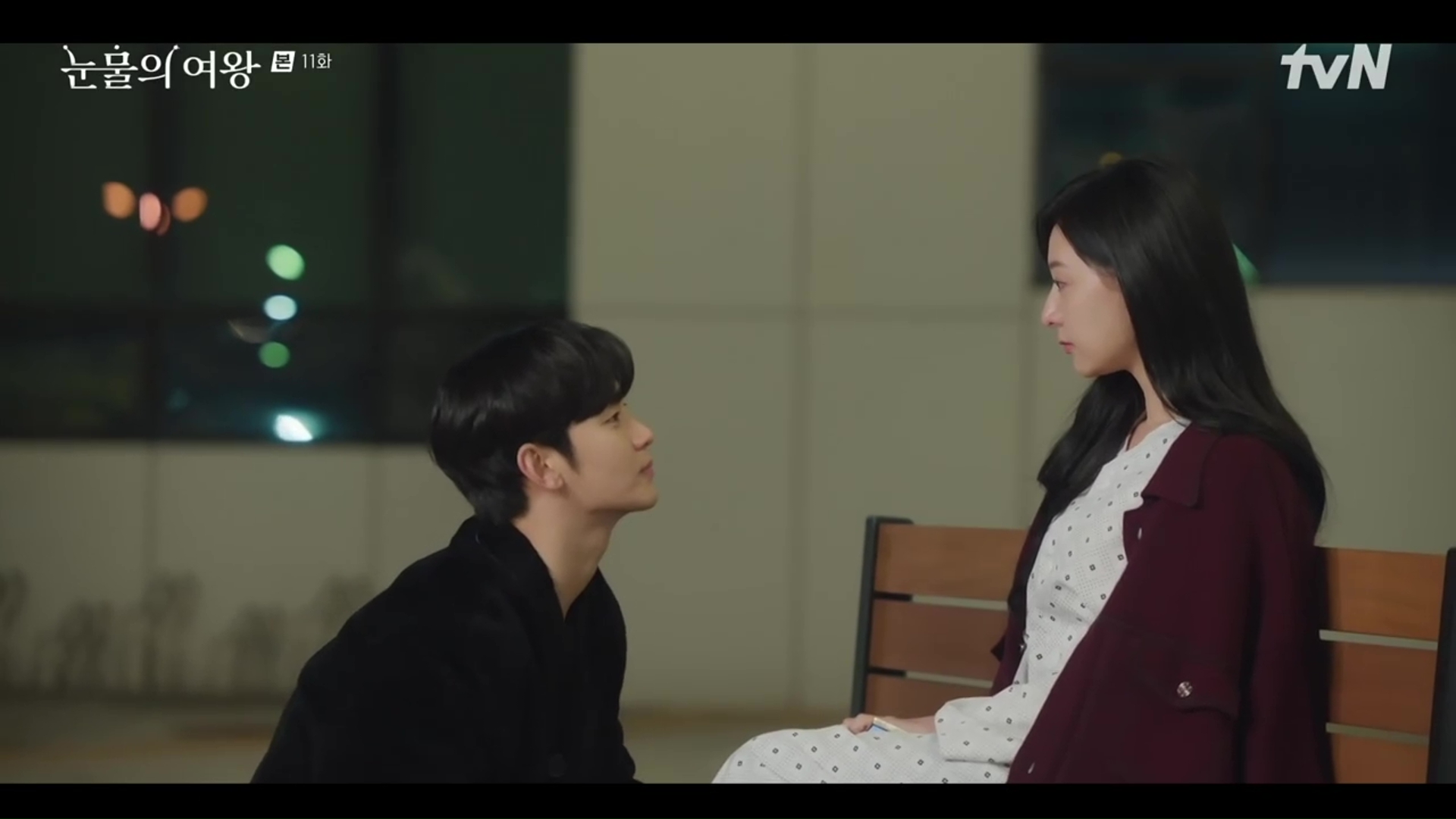
Required fields are marked *
Your email address will not be published. Required fields are marked *
51 canxi
August 26, 2013 at 9:52 PM
Will Part 2 answer the question of why everyone bothers to take the cell-phone battery out of the phone instead of just turning it off?
Like, one day ya'll are gonna lose them things, I swear.
Required fields are marked *
Conny
August 27, 2013 at 5:24 AM
That one's simple.
It just looks so much better to angrily remove back cover, take out battery and with an exasperated sigh toss the entire mess on the desk, all while ignoring the curious stares of your co-workers...
Now imagine the same scene but our heroine (cause it's rarely ever the guys doing it, it's usually the girls) is angrily holding down the power button on her phone until it turns off.
Yeah, just doesn't really do it for me..lol.
Required fields are marked *
canxi
August 27, 2013 at 2:36 PM
But, they do it even when they're on their own! Lol, so then it just looks silly and strenuous because taking the back cover off of these new-fangled smart phones is hard work much of the time. I had to pry mine off with a nail file the other day, lol!
Required fields are marked *
52 Celery
August 26, 2013 at 9:52 PM
How about "Are you crazy?!" It's THE pet phrase in Korean dramas, or at least in the ones I watched, to a point where it's phonetically engraved in my mind!
I'm curious to know: Do Koreans say that a lot irl?
Required fields are marked *
lilo
August 26, 2013 at 10:17 PM
or do you wanna die?
Required fields are marked *
pearl3101
August 27, 2013 at 2:28 AM
they probably do.. And I do like them a lot :) However I hate ottoke?/ what will I do? Drives me mad every time.
Required fields are marked *
windsun33
August 27, 2013 at 4:56 AM
I read someplace on the "Ask a Korean" site that the "what will I do", "what should we do" etc. is actually fairly common among (esp older) women in Korea. The reason given was that because of the way Korean society is so stratified, women tend to always look to men to make a decision. Also, if there is any authority figure present both men and women tend not think for themselves, but look to that figure to make a decision.
I don't have a clue as to how true that actually is in real life, but it sounds at least plausible. In WW2 a similar thing was noted among Japanese soldiers in the battle for Okinawa - where if the troops had no leader, they were essentially "locked up on a mark". *
*That term is never used anymore, but it refers back to the old mechanical Teletype machines, which basically used a "mark" and a "space" (on/off) to control what letters printed. On a continuous "mark" the machine was essentially locked up and did nothing.
Required fields are marked *
pearl3101
August 28, 2013 at 1:20 AM
So it basically means that the older person should always be the one calling the shots...
windsun33
August 28, 2013 at 3:34 PM
... Older person..
That brings up visions of a crowd of people all standing around an accident victim checking each other birthdays to verify who "is in charge".. :(
Celery
August 27, 2013 at 7:56 AM
I know otokke and boyah(?) are common terms that are used cos in i hear them often during bts or interview clips.
But "are you crazy?!?!" ... Can't really see it applied thaatttt often in real life. In drama land, it's uttered almost every 5-10 minutes!
Required fields are marked *
KimYoonmi
August 27, 2013 at 2:16 PM
Ottokke and mwoya~
Ottokke litterally means how, rather than what. But it doesn't translate well into English "How did this happen?"
ottokke ka jo?
How did you get here? (rough translation, sorry)
Mwo means what.
ya is more of an exclamation point, but it's not a literal one... it's a bit difficult to explain without getting into Korean grammar.
Mwoya, BTW, is informal speech. Do not use with people you don't know you know are older than you.
Koreans like "doing" things, "Hada" rather than being things "to be". I think that philosophy, though I have no backing also explains the "How?" for everything versus the "What?" What asks if it exists. How means something was done. Making Koreans hard working and English speakers debating the existence of "to be, or not to be." <-- lame interlingual grammar joke. I made that one up, BTW.
dfwkimchi
August 27, 2013 at 12:55 PM
Ottoke? - hahaha -
This too had been engraved in my head - so much so that just the other day I brought my car to get its annual inspection (in Texas it is mandatory that your car pass road worthiness inspection for it to be allowed on the road).... and the name of the repair shop was .... (drumroll please) Texas Autokare - and all I could think about was ottoke? ottoke? - I cannot watch my drama if I am stuck here at the repair shop!
Required fields are marked *
dramabliss
August 28, 2013 at 11:42 PM
LOL!!!
53 Julia
August 26, 2013 at 10:13 PM
I'm excited about this--I've really appreciated your previous explanatory posts, particularly the glossary ones, which have made my drama-viewing experience make about 1000% more sense.
Note: I think you mean "whither" rather than "wither" in the title of chapter III.
Required fields are marked *
54 lilo
August 26, 2013 at 10:16 PM
You Can Call Me Names, But You Can’t Call Me By Name... i think this statement right here summarises korean culture hahaha you cant call me by name so witty. cant wait for the e book
Required fields are marked *
55 redfox
August 26, 2013 at 10:48 PM
Can you perhaps assess the issue of "grown-ups slapping minors in da face really hard and child protection non-existent"?
Required fields are marked *
pearl3101
August 27, 2013 at 2:26 AM
Especially MIL's slapping DILs.
And people pouring the glass of water before them on the person opposite to them if they can't win an argument.
Also the salt-throwing part....
Required fields are marked *
windsun33
August 27, 2013 at 5:08 AM
For child and other abuse, see this Wiki article. The movie itself is available on a few sites, perhaps under alternative names: http://en.wikipedia.org/wiki/The_Crucible_(2011_film)
The Crucible (Korean Movie - 2011) - 도가니, aka Dogani, Silenced.
Required fields are marked *
windsun33
August 27, 2013 at 5:28 AM
Child and other abuse seems to get mixed up with politics (and political corruption) a lot in Korea. But this is one of several topics that are NEVER covered in the TV shows and dramas. I suspect that one reason is censorship, self or government imposed, but who knows for sure?
Just to show how distorted things can get - "Members of the ruling Grand National Party’s (GNP) Human Rights Committee called for a police investigation of Gong Ji-young, author of the novel “The Crucible,”..."
"The Crucible" was a 2011 movie that sparked a LOT of outrage in Korea. It concerned the abuse and cover up of massive physical and sexual abuse in a school for the disabled. That government official noted above was trying to use the police to silence the author of the book from which the movie was made.
Required fields are marked *
dramabliss
August 28, 2013 at 11:45 PM
Have always wondered about this, likewise.
And the slapping and hitting on the head (with bags, if it's a woman doing the hitting) - not just on kids but even grown-up offspring. E.g., the mom hitting Hyun Bin all the time in MNIKSS.
Dousing over the head with water/wine/whatever liquid is on hand, or throwing it in someone's face.
Required fields are marked *
56 Linh
August 27, 2013 at 12:27 AM
How much will the book cost? And can we buy all the parts at once or will they be released as individual issues?
Required fields are marked *
57 Kudo Ran
August 27, 2013 at 1:13 AM
"Rooftop Rooms: You might be poor but at least you have a view" :D, can't wait for this book, oh damn it you do so many things, Aja aja Fighting ;)
Required fields are marked *
58 vlackerine
August 27, 2013 at 1:22 AM
this is going to be my new favorite book!
Required fields are marked *
59 pearl3101
August 27, 2013 at 2:22 AM
My personal question I'll add is about the piggy back rides. Hope you guys include that. Not just about drunk people piggy backed, but people even piggy back toddlers. like in high kick...
Required fields are marked *
60 ailee
August 27, 2013 at 4:19 AM
Omg I'm so excited! Can't wait :DD
Required fields are marked *
61 Conny
August 27, 2013 at 5:35 AM
Can't wait to the ebook. Can we preorder?
Also.. is it done yet?
Required fields are marked *
Conny
August 27, 2013 at 5:36 AM
How about now?? =P
Required fields are marked *
62 kathy
August 27, 2013 at 5:50 AM
I hope you can also include this in your e-book coz I usually see this scenes in korean dramas.
Is nosebeeding common in Koreans because in my entire life I never had a nose bleed even I’ve been working for 16 to hours a day and I never seen one having a nose bleed due to stress and hard work but in korean dramas, it's very common.
In most Korean dramas, why is it that when the actor cries, tears just fall from one eye? I find it unusual coz you can’t tear up in just one eye and the worst thing is the tears are just like water coming from a faucet.
Why do Koreans in most dramas especially the average and poor ones eat their food in large bites and they tend to eat rice in full scoop. And even if their mouth is still full why do they tend to shove food in their mouth again without chewing the food first. I also notice that sometimes they eat without any water beside them and sometimes they finished the food without drinking water.
Why do they not use serving spoon in a big pot of soup or stew when a family or even friends eat and just use their spoons to eat directly from the pots. Why do they not use small bowls especially if you are only two and there’s a big casserole of soup or stew. Does it mean they throw the leftovers coz I don’t think they should be kept in the fridge with the way they eat.
Why do they order so much food in a restaurant even if there are only two people to be eating and then they always left the food without even eating a tenth portion of the order. Do Koreans really order that way or only in Korean dramas.
Required fields are marked *
windsun33
August 27, 2013 at 6:17 AM
Many of your questions have been a mystery for ages, and I have never seen a good explanation for them. I am sure that few, if any, of them are actually true - but I wonder why they have gotten to be so common in Korean dramas?
One thing I have noticed about the face-stuffing with huge scoops of rice or whatever is that the person doing it is nearly always depicted as "lower class". But not always - in the k-drama "Take Care of Us, Captain"* the heroine (Koo Hye Sun), who is supposedly on her way to being a genius airline pilot gobbles down huge mouthfuls of rice that would choke most horses.
*Not a very good drama, BTW. Full of factual errors.
Required fields are marked *
pearl3101
August 28, 2013 at 12:40 AM
Oh I think GHS always does that. She did that in BBf too.. Made me turn away my eyes.. but I have no complaints about how everyone else eats..
Required fields are marked *
KimYoonmi
August 27, 2013 at 12:28 PM
1. Is nosebeeding common in Koreans because in my entire life I never had a nose bleed even I’ve been working for 16 to hours a day and I never seen one having a nose bleed due to stress and hard work but in korean dramas, it’s very common.
A, This might be an import from Japan (sexual turn on==blood from nose. See Freud for an explanation of that), or it's the belief of high blood pressure. Plus there are a lot more physical things in Korea.
2. In most Korean dramas, why is it that when the actor cries, tears just fall from one eye? I find it unusual coz you can’t tear up in just one eye and the worst thing is the tears are just like water coming from a faucet.
A. US is not exempt from this either. Nor Britain. I think it's more a tradition. Also how fast can you put in eyedrops? (Last bit is joking a little)
3. Why do Koreans in most dramas especially the average and poor ones eat their food in large bites and they tend to eat rice in full scoop. And even if their mouth is still full why do they tend to shove food in their mouth again without chewing the food first. I also notice that sometimes they eat without any water beside them and sometimes they finished the food without drinking water.
Makes you feel full faster.
4. Why do they not use serving spoon in a big pot of soup or stew when a family or even friends eat and just use their spoons to eat directly from the pots. Why do they not use small bowls especially if you are only two and there’s a big casserole of soup or stew. Does it mean they throw the leftovers coz I don’t think they should be kept in the fridge with the way they eat.
The majority that do this are poor. Also there weren't really serving spoons, traditionally. Either soup is served individually, in which case you steal, or you share because you are family.
Also, have you tried soup out of a casserole dish? So much better than a metal bowl which gets hot quickly.
5. Why do they order so much food in a restaurant even if there are only two people to be eating and then they always left the food without even eating a tenth portion of the order. Do Koreans really order that way or only in Korean dramas.
Part of it is the panchan. (You haven't eaten Korean food have you?) Part of it is the variety. And part of it is the promotional aspect.
Also, Korean food is soooo good. It's really, really difficult to choose one dish. When I got to a Korean restaurant alone, I usually want 2 appetizers, 2 main courses... and if I can cram it, a soup. Korean food is meant to be eaten communally, family style.
I think Koreans would laugh at seeing Korean food treated like French-American food with little sprigs of say, perilla and a tiny bite. Koreans eat more Italian style.
Is everyone hungry or something? 'cause all these questions about food...
Required fields are marked *
KimYoonmi
August 27, 2013 at 12:30 PM
I should note with the usual disclaimer, that I do not speak for all Koreans, and there will always be people that don't fit into a generic answer. Which is true of every culture.
Required fields are marked *
windsun33
August 27, 2013 at 1:15 PM
#5. I was watching a 2009 documentary about North Korea on YouTube a while back, and saw the same thing there. Instead of one or two main dishes, there were lots of small ones - apparently in an effort to make it look a lot more sumptuous than it was. This was in one of the North Korean "show" hotels open to tourists only.
The narrator (Chinese) described the food as something like "A dozen small chipped bowls containing some kind of multi-colored but almost inedible animal fodder". and that "we have eaten better Korean food in downtown Laredo, Texas".
In contrast a while back I had a get together with some Korean, Chinese, and Japanese friends in Los Angeles and about 8 of us went to a Korean restaurant. It was pretty much as shown in many k-dramas, with 3 central main dishes and a horde of side and appetizers. However, I don't think anyone drank Soju then, it was pretty much Tsingtao, Tiger, and Kirin beer.
Required fields are marked *
windsun33
August 27, 2013 at 1:21 PM
I would add that the two Korean-Americans there said that Korean beer pretty much sucked. I personally don't recall ever drinking Korean beer, even in Korea most of the bars I went to ages ago served mostly Japanese brands at that time.
Required fields are marked *
KimYoonmi
August 27, 2013 at 1:55 PM
Panchan, or side dishes are really good. They can change the taste of the food you're having right now. It's a traditional thing and usually how people eat their vegetables.
The ones I'm used to are soup, kimchi, blanched and marinated bean sprouts (soy), marinated anchovy-sh fish, acorn jelly, etc. They change on weather, seasonality, and so on. At the really fancy restaurants where you pay 100 dollars+ per person, I've heard they will custom make them for your health concerns, and adjust it for weather that day.
But panchan are free with Korean meals usually, so they act like side dishes and aren't really meant as appetizers, but to be eaten with the overall meal.
Appetizers run on things like Mandoo (and man, do, do mandoo.) Kimbap, fishcake, soondae, etc. Mandoo and Kimbap are my favorite. Futomaki, BTW, taste different to me than Kimbap, but most Koreans and Japanese think I'm nuts for thinking so...
You can also find some of that in street food, such as odeng, odeng juice (better in the afternoon) fried, sweet ddeokbokki., spicy ddeokbokki, kimbap, pancakes (flour and mungbean), etc. (I really miss that--I loved street food, and it's seasonal too...)
Soup used to be a separate course in the King's palace. People put rice into the soup/stew sometimes too. I like doing that. (Stoup?--most of them run in between the two.) Kimchi Chigae, bubbling angrily, in the Southern style is my favorite. Lots of rice to pile on.
And then main courses... depends on the weather. Naengmyun--cold wheat noodles in a broth, egg and mustard...
Yukkyejang... brisket stoup.
Bulgogi--though better at a Seogyeopsal place. thinly slice beef, marinated.
There are other types of bulgogi too... Ojingo, for example, which is spicy. and Chicken.
Kalbi, Beef spare ribs, marinated, cut thin and long. I like chewing on the bone. (Not what you're probably thinking)
Jap Chae--glass noddles with vegetables. Whatever is in season.
Bibimbap... rice basically with panchan in it. You rarely get panchan at the side in addition. There is also a version where the rice in the bottom is fried in the hot bowl, which is dolsot bibimbap. The crispy rice is an extra people would sometimes fight over. (They sell it separately at Korean grocery stores, sometimes as a snack) Often eaten for lunch, individually. (Has the hot sauce, as seen in dramas, though the hot sauce has some natural sweetness in it too from malt).
Bibim Naengmyeon... vegetables over spicy sauce. Often eaten for lunch.
And for breakfast, Kalbi tang is my favorite, hands down. You cook it overnight with onions and garlic, and put in some white radish, salt, pepper. The meat falls off the bones. It's very much like comfort food. It has that rich savory taste. You eat it with rice and Kimchi. (This is the traditional food because of the time involved. I was told my paternal grandmother used to make it every morning for breakfast, which may explain why I felt warm and fuzzy eating it (again) without remembering that.)
I'm hungry now. >.<;; My plans for Seogyeopsal have fallen through a few times now, so this is torture. I need to gather my relatives and try again.
Required fields are marked *
dramabliss
August 28, 2013 at 11:48 PM
On the subject of eating--
Feeding each other - usually done by couples, or mother and off-spring, even if that son/daughter is so grown-up already.
Am not against this, I think it's a sign of intimacy. I just wonder if this is so Korean because I have not seen it (its pervasiveness) except in K-dramas.
Required fields are marked *
63 windsun33
August 27, 2013 at 5:56 AM
I think we all know that TV dramas and movies in no way really depict how real life is - in Korea or any other country.
What I find interesting is what direction the various dramas take - in the US it is often crime/police type stuff that dominates. In Korea it seems like the vast majority of dramas are somehow associated with chaebols (nearly always evil, except for the Prince).
There are several English language Korean sites on the internet, including some newspapers. What is interesting in reading those is that most of the headline topics are seldom subjects covered by Korean dramas.
Required fields are marked *
64 owl
August 27, 2013 at 7:57 AM
So great! Looking forward to reading all about kdramaland to fill out my fake real world :) Thanks for all your hard work and time put into this project on top of dramabeans - you are busy gals for us!
Required fields are marked *
65 sophia
August 27, 2013 at 8:41 AM
Back again to say
1. I'm more excited than Jesse Spano about this book.
2. I second the comment above lamenting why none of my friends want to understand the extreme hotness of Lee Min Ho. or So Ji Sub. or Song Joong Ki (just watched "Penny Pinchers" on Hulu...adorbs).
3.To suggest another chapter about older actors. Why is it that only 5 or 6 keep repeating as the ajumma/ajushi? Does Kim Mi Kyung have a drawer full of blackmail material on every drama producer in the world? The woman is basically in EVERYTHING (currently the evil cougar in Master's Sun but also appeared in IHYV, Faith, I Miss You, Golden Time, Secret Garden, Sunkuyngkwan Scandal and .......the list is LONG). Same for some of my favorite ajushi's. I love them but....don't other older actors need work too?
Required fields are marked *
Lixie
August 27, 2013 at 9:30 AM
I'm very curious about 3 too! There are at least 3 or 4 guys that show up in EVERY drama! Ok, every is an exaggeration but to me it feels like that!
One of them in Kimura Taro, ahahah, ok, I don't know his real name. He is currently a doc in Good Doctor and a ex thug in Two Weeks. They show up in more than 1 show at the same time. It's bit much no?
The other was the father of leading woman in Secret Garden. He is also everywhere!
Required fields are marked *
66 dfwkimchi
August 27, 2013 at 10:32 AM
It has been a VERY LOOOOONG time since I have been waiting for a book to come out!
Where can i sign up to get an alert when it is published (e-book or hard copy)?
E-book is good - no chance of it being out of stock and have to wait for God-knows how long to get it delivered.
My Kindle app is all set for your MASTERPIECE!
Thanks JB and GF! You are doing a very kind service for ALL K-addicts in this world (who do not live in Korea or are of Korean-descent)!
Required fields are marked *
67 Cherry
August 27, 2013 at 10:52 AM
looking forward to this ♥
Required fields are marked *
68 KimYoonmi
August 27, 2013 at 12:18 PM
BTW, selective amnesia does happen. 'Cause it happened to me. But it's not as drastic as in Korean dramas/American television. And it's usually done wrong.
Psychologists generally will say it doesn't, generally, happen, and the recovered memories are iffy at best, but my story refutes that entirely. The memories I recovered individually without any outside clues were 100% verified by someone who didn't know my emotional states or background.
I'm out to try to verify the last one, when I get the cash.
PTSD causes psychological memory loss, and only extreme brain injury causes amnesia. Cognitive dissonance also can create partial amnesia.
Before recovering past memories, I thought it was crap. I didn't believe it for a second. I sided with the science. But when it happened, I couldn't stop it until I came to grips with the fact it might be true. And it hurt like nothing else in the world. Migraine? Nope, this was worse. I was out for the entire day and the following week wasn't easy either.
Recovering memory is painful, both slow and fast. Best matches for that are I Can Hear Your Voice, which got pretty close and Secret Garden (Korean)... though I still think a therapist is better for helping you get to grips with things you do see.
Required fields are marked *
69 dfwkimchi
August 27, 2013 at 12:45 PM
JB/GF - one request please?
Can you or one of your kind readers explain why Korean actors/actresses need to TAKE OUT the battery of the hand/cell phone to disable it from working?
My OLD flip (read not smart) phone had a power on/off button take I use to turn it off when I don't want anyone to 'reach out and touch' me. The same power button is also available on the smart phone.
Required fields are marked *
KimYoonmi
August 27, 2013 at 1:59 PM
I asked a Korean friend who grew up there that. And she said, "Yeah, Eonni, it's because it's more dramatic."
I was like, "really? Do they not find the off button? Is there not one?" (Did Steve Jobs take over the planet)
And she said, "Yeah, for the drama."
But thinking a bit more cynically, it might be a cellphone battery maker that's sponsoring the show??? 'cause it doesn't happen uniformly and I think it might be a "feature" of the phone that the battery is easy to change and get, since they throw the batteries everywhere.... ^.~
If it could relate to money, it probably does.
Required fields are marked *
canxi
August 27, 2013 at 2:46 PM
I was thinking this. Because they do it even if the character is on their own (which loses the dramatic flair and looks kinda silly, lol) so I was wondering...are they trying to show off the battery?
Required fields are marked *
pearl3101
August 28, 2013 at 1:27 AM
Maybe it 's to take out your anger/frustration on the phone... Kindof like breaking the phone but in a more economic way??
Required fields are marked *
KimYoonmi
August 28, 2013 at 3:13 PM
But it's been happening less lately, which just suggests to me that it was a selling feature of the phone. I remember the days where changing a cellphone battery was difficult...
But that's just cynical thinking.
Required fields are marked *
70 gdansk19
August 27, 2013 at 1:24 PM
I laughed out loud and giggled at several of these chapter headings. Totally looking forward to getting this e-book as a relative newbie (about 3 or 4 years) to K-drama and all its wonderful goodness. Though this will cramp my drama marathoning....oh the dilemma!!
Required fields are marked *
71 Julia the Berkshire Beanie
August 27, 2013 at 2:59 PM
What is al-ba? My Google Fu failed. Found things like
- Finely pulverized gypsum used in making paper and paints and as a nutrient for growing yeast
- a Provençal troubadour poem or love song, typically about the parting of lovers at dawn
- Alba is the Scottish Gaelic name (pronounced [ˈal̪ˠapə]) for Scotland
Required fields are marked *
pearl3101
August 28, 2013 at 12:53 AM
alba means part-time jobs...that is what I thought it meant..
Required fields are marked *
deli
August 30, 2013 at 5:20 AM
alba is korean way of saying the german word "arbeit". it means work ..
Required fields are marked *
72 shiroikiwi
August 27, 2013 at 11:16 PM
So excited for the book!!
Required fields are marked *
73 Colors
August 28, 2013 at 12:59 AM
I'm looking forward to buying and reading your work! Good luck and don't overwork the monkeys, and by the way: hwaiting!!! =)
Required fields are marked *
74 Anna
August 28, 2013 at 4:25 AM
Someone should do a similar thing for K-variety one day!
Questions I have in mind:
1. Why doesn't anyone get visibly injured on Running Man?
2. Why do older *male* guests call Yoo Jae-suk "oppa"?? (as a form of flattery, perhaps?)
3. Ditto for Han Hyo Joo, who, according to an Internet source, once called him "hyung" on the show. (she was in a boyish mood?)
4. Gigantic crews. >60 cameras. Next-to-nonexistent product placements. Zero commercial break. How do K-variety programs manage to secure the enormous budgets they seem to be working with through after-program ad sales alone?
Required fields are marked *
Sabelita
August 28, 2013 at 8:28 AM
Have you heard about high rates of suicide in producers last one one month ago
Required fields are marked *
KimYoonmi
August 28, 2013 at 3:20 PM
"oppa" and "Hyeong" are more fluid than they show on dramas, but only colloquially. Also, Eonni used to be only for males.
As for the funding of Running Man, they have those baseball caps they wore early on, after they got popular, the coats, the hats, etc didn't appear as much. That's because SBS funded them more money. Also the agencies fund it when there is is promotion. For example, ICHYV.
As for 1, I noticed they have safety crew on hand before and they also test all of the games before they make the performers do them. (You have to watch a massive amount of episodes to get that though.) Sometimes it'll leak that they did the safety test before that in some episodes.
For Running Man, they have two helicopter cameras for the overview shots, 7 cameras for the various members (Dedicated VJs). And I think 3 extra cameras. And then occasionally different ones for the guests. That's definitely not 60. The fact I keep track tells you a lot, doesn't it?
Required fields are marked *
75 Ethalina
August 28, 2013 at 5:47 PM
I'm whimpering at every bullet point. I can't wait to read this!
That anon who questioned your ability and authority to write this doesn't know us readers at all.
Required fields are marked *
76 viluven
September 1, 2013 at 12:11 AM
Gosh! How can I have it since I don't have a credit card (⌣́_⌣̀). Such a great e-book, will helping people understand the K-dramas more by knowing the culture behind.
Required fields are marked *
77 Jessica
September 1, 2013 at 2:10 AM
I am super looking forward to buying your book! Please release it on all ebook channels! I can't buy ebooks off Amazon! *Cries*
Required fields are marked *
78 peepingthoughts
September 23, 2013 at 11:36 PM
I am also wondering what's with the fist when saying "fighting"?
Required fields are marked *